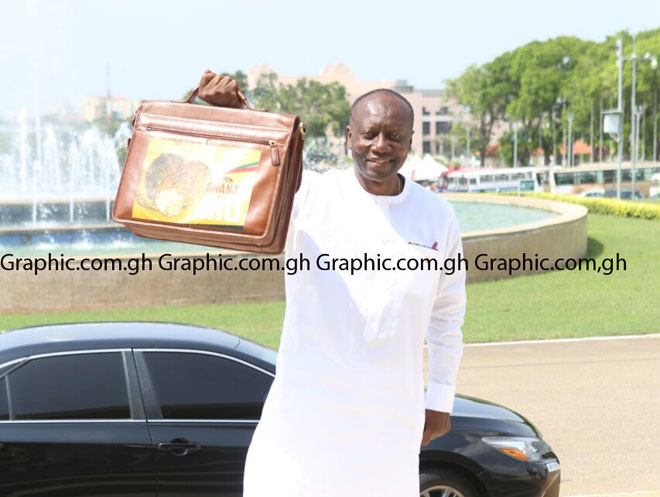
Govt to review economic targets, projections in mid-year budget today
The government will seek to breathe fresh hope into the economy today when the Minister of Finance, Mr Ken Ofori-Atta, appears before Parliament to present the first comprehensive fiscal policy statement to Ghanaians after the emergence of COVID-19.
Today's presentation of the mid-year budget review comes after the Covid-19 pandemic and its multiplier effects have ravaged the economy and thrown key economic targets contained in the 2020 budget out of gear.
Although a requirement under Section 28 of the Public Financial Management Act (PFMA), 2016 (Act 921), this year's budget review attracts special interest.
It presents the government with the best window of opportunity to point Ghanaians to what the pandemic has done to the economy, how it intends to insulate it from the impact of the virus in the short term, and how it will revert the economy back to stability in the medium to long term.
Expectations
Mr Ofori-Atta is also expected to use the review budget opportunity to give a clearer perspective of the government's assessment of the cost of the pandemic, the details of the country's response strategy and the new fiscal targets owing to the Covid-19 spread.
An economist, Dr Said Boakye, told the Daily Graphic yesterday that he expected the minister to use the review to stabilise the economy and launch a caution attempt to revitalise the economy.
He said while an economic recovery programme was crucial, given the damage that the viral spread had imposed on the economy, the situation was still dicey.
He pointed to the consistent recording of new Covid-19 cases and the need to be tactical with any spending meant to revive the economy and stimulate it for growth.
Dr Boakye, who is a Research Fellow with fiscal policy think tank, the Institute for Fiscal Studies (IFS), said a poorly targeted spending meant to stimulate the economy could worsen the debt situation and create a bigger fiscal crisis that would take a longer time to resolve.
Budget targets
The research fellow added that he expected the minister to also announce new targets for growth and fiscal deficit.
On growth, he said, he expected the new target to range between one and five per cent, adding that the economy was far from registering a negative growth, technically referred to as a recession.
While the Ministry of Finance had earlier projected gross domestic product (GDP) growth to slump from a budget target of 6.8 to 1.5 per cent, the Bank of Ghana (BoG) said in March that economic growth could fall to 2.5 per cent in the worst case scenario.
Budget deficit
Dr Boakye said the pandemic had thrown the revenue and expenditure targets off guard, hence the need to revise the deficit target.
He said the slowdown in business operations owing to the pandemic meant that payroll, along with corporate and consumption taxes, would suffer.
That, he said, would result in a general decline in the total revenue projected for the year.
On expenditures, he said the pandemic had brought with it new spending pressures as the government aimed to contain its spread to mitigate the impact on lives and the economy.
Added to the election-year pressures, Dr Boakye said the government would surely spend more than it initially estimated.
"The country is already boxed in a corner and so you will wish that the government will be modest in how it is spending, but I do not see that happening with this year being an election year," he said.
He explained that the 15 per cent increase in public sector workers' pay in March was a clear indication that the government was not ready to compromise its elections-induced expenditure on the back of the pandemic.
